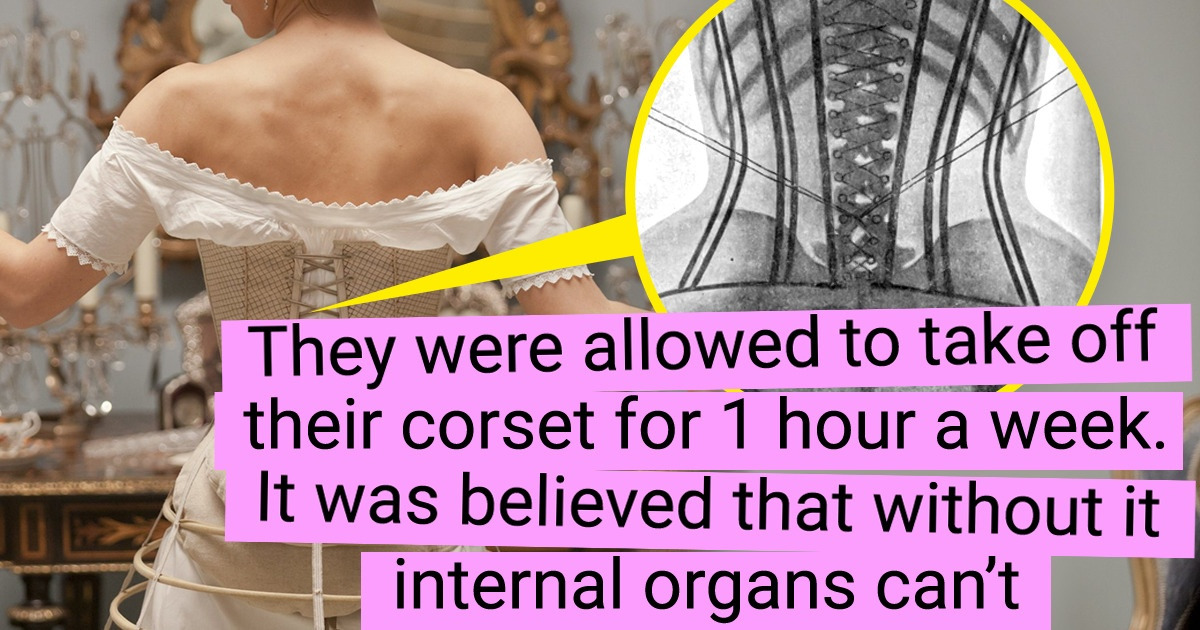13 People Talked About the Situations That Made Their Workdays Unforgettable


From childhood, we’ve been taught proper rules of behavior that exist in society. This science is called “etiquette.” And each epoch had its own version of etiquette. In Ancient Greece, for example, it was okay to have dinner lying down, and just 150 years ago, it was considered indecent to put your gloves on in the street.
At Bright Side, we studied the history books and found other behavior rules that used to be acceptable in the past but seem awfully funny now.
If you look at old photographs, you will see that people are not smiling in most of them. Historians say that one of the reasons could be dental. Most people’s teeth were not in very good condition or they weren’t even present, and therefore, people didn’t want to show them. However, other historians argue that bad teeth were normal for those times, so people didn’t hesitate to show them.
According to another theory, it was all about the rules of etiquette. Wide smiles were associated with madness or something obscene, so people tried not to smile.
As there were no napkins, people wiped their mouths and hands on their clothes after dinner. In the Middle Ages, they began to cover tables with tablecloths. Initially, they were for decoration at higher-class gatherings. However, later, tablecloths began to bring practical benefits: they served as one large napkin for everyone who was sitting at the table.
In books for young ladies of the Victorian era, special attention was given to hairstyles. The authors recommended ladies experiment with hairstyles first to understand which styling suited them best. Additionally, they suggested they choose a hairstyle based on the appearance of the young lady.
According to what they wrote, light hair was generally most becoming when curled, while dark hair ringlets should never fall in heavy masses upon the shoulders. On the other hand, the fashion of laying the hair smoothly was fashionable to few because it had a look of vanity instead of simplicity.
In the sixth century BCE, it was considered rude among the Greeks to speak with their hands outside of the clothing. Even the statues of that time had one hand hidden under the cloak. Later, this rule was forgotten for many centuries.
This custom was revived in the eighteenth century when portrait painters began to look for inspiration in ancient sculptures. They liked the “signature” pose of the Greek sculptures, and they began to ask those posing to also hide their hand. As a result, many famous personalities were depicted in this position, as they observed proper etiquette.
Until the mid-twentieth century, parenting books recommended adults ignore crying children. According to the authors, a baby should learn that such behavior will only cause their parents to ignore them. Spoiling a child was considered indecent, and hugging and kissing your children was unacceptable. Another parenting rule of the time was to never play with babies under 6 months old.
According to the etiquette of the nineteenth century, putting on gloves while in the street was considered a mark of ill-breeding. In the books, it was recommended to check several times before leaving the house whether the lady was completely ready. Arranging the outfit or putting something on in public was considered shameful.
In the Victorian era, engagement involved a lot of etiquette rules. For one, a gentleman had to get permission from the lady’s father before proposing to her. If for some reason the engagement was broken off, the couple had to stop communicating and treat each other as complete strangers.
If both the lady and her father agreed to the proposal of the gentleman, the future spouses had to observe the rules of decency. The couple could never go out together alone, and they couldn’t whisper to each other so as not to “cause smiles and comments” from society. It was also considered indecent if the fiancée squeezed her fiancé’s hand.
In the late nineteenth century, they believed, in many countries, that a woman’s body needed additional support. According to etiquette, the lady’s back was supposed to always remain straight, regardless of whether she was sitting or standing. It was believed that without it, the internal organs of a woman simply could not withstand the load.
Do you think a modern person could observe these etiquette rules? Tell us in the comments below.











